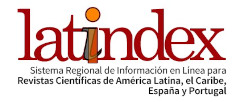KNOWLEDGE MANAGEMENT IN STARTUP ACCELERATORS: STUDY OF PROCESSES, PRACTICES AND INFORMATION TECHNOLOGY TOOLS USED IN BRAZIL
DOI:
https://doi.org/10.54399/rbgdr.v18i3.5646Keywords:
Knowledge management. Knowledge managementprocess. Knowledge management practices. Startup.Abstract
One of the ways to streamline the generation and promotion of innovations is through startup accelerators. In these programs, startup accelerators use their own methodologies to provide startups with the knowledge they need to make the business scalable. The objective of this research is to identify and characterize the main processes, practices and tools of Information Technology (IT) used in the knowledge management of startup accelerators operating in Brazil. This is an exploratory-qualitative research that uses multiple case studies on five startup accelerators. Owners and managers were interviewed. Interviews with semi-structured script and documentary analysis of public records were adopted. The main processes and practices used by the accelerators analyzed were: spaces and events dedicated to the socialization of knowledge, knowledge mapping, development of mentoring actions, availability of in-person training with instructors and corporate portal. The main IT tools identified in the accelerators surveyed were: WhatsApp groups, virtual meetings and conferences, mobile phone, VOIP telephony, extranets, social networking and cloud computing. Startup accelerators have been found to use IT processes, practices, and tools to a greater or lesser extent. However, the consulted accelerators use these resources in isolation, almost unconnected with each other, which entails information/knowledge that risks being segmented without sharing with others involved in the organization.
References
ABREU, P.; CAMPOS, N. O panorama das aceleradoras de startups no Brasil. San Francisco: Createspace independent publishing platform, 2016. Disponível em: <http://bibliotecadigital.fgv.br/dspace/handle/10438/18853>. Acesso em 13 mar. 2019.
ABSTARTUPS - Associação Brasileira de Startups. Aceleradora de startups: o que é e para que serve? São Paulo: Abstartups, 2017. Disponível em: <https://abstartups.com.br/2017/04/06/aceleradora-de-startups-o-que-e-e-para-que-serve/>. Acesso em 05 jan. 2019.
Alavi, M.; DENFORD, J. S. Knowledge management: Process, practice, and web 2.0. In: EASTERBY-SMITH, M.; LYLES, M. A. 2 ed. Handbook of organizational learning and knowledge management. London: John Wiley & Sons, 2011, p. 105-124.
BARDIN, L. Análise de conteúdo. São Paulo: Edições 70, 2011.
Bratianu, C. Organizational knowledge dynamics: managing knowledge creation, acquisition, sharing, and transformation. New York: IGI Global, 2015.
CALHOUN, M.; STARBUCK, W. H.; ABRAHAMSON, E. Fads, fashions and the fluidity of knowledge: Peter Senge's' the learning organization'. In: EASTERBY-SMITH, M.; LYLES, M. A. Handbook of organizational learning and knowledge management. 2 ed. London: John Wiley & Sons, 2011, P. 225-248.
CHATTERJEE, S. Managing constraints and removing obstacles to knowledge management. IUP Journal of Knowledge Management, v. XII, n. 4, p. 24-38, 2014.
CHESBROUGH, H.; WEIBLEN, T. Engaging with startups to enhance corporate innovation. California Management Review, Berkeley, v. 57, n. 2, p. 66-90, 2015.
COHEN, S.; HOCHBERG, Y. V. Accelerating startups: the seed accelerator phenomenon. SSRN Journal, p. 1-16, mar. 2014. Disponível em: <https://papers.ssrn.com/sol3/papers.cfm?abstract_id=2418000>. Acesso em: 12 dez. 2018.
COHEN, S.; FEHDER, D.C.; HOCHBERG, Y. V.; MURRAY, F. The design of startup accelerators. Research Policy, v. 48, p. 1781-179, 2019.
COSTA, L. S.; MARTINS, D. A. Utilização das redes sociais virtuais no processo de gestão do conhecimento: aplicações e práticas no campo das organizações. In: SEMEAD - Seminários em Administração, XX, São Paulo, 2017. Anais... São Paulo: USP, 2017, p. 1-17.
CUPIAL, M.; SZELAG-SIKORA, A.; SIKORA, J.; RORAT, J.; NIEMIEC, M. Information technology tools in corporate knowledge management. Economia I Prawo Economics and Law, v. 18, n. 1, p. 5-15, 2018.
DALKIR, K. Knowledge management in theory and practice. 3 ed. Massachussets: MIT Presse, 2017.
DAVENPORT, T. H.; PRUSAK, L. Conhecimento empresarial: como as organizações gerenciam o seu capital intelectual. Rio de Janeiro: Campus, 1998.
DENZIN, N. K.; LINCOLN, Y. S. Handbook of qualitative research. 5 ed. Los Angeles: Sage, 2018.
DRUCKER, P. Innovation and entrepreneurship. New York: Harper Collins, 1993.
FERRARIS, A.; SANTORO, G.; DEZI, L. How MNC's subsidiaries may improve their innovative performance? The role of external sources and knowledge management capabilities. Journal of Knowledge Management, v. 21, n. 3, p. 540-52, 2017.
FLOR, C. S.; SANTOS, G. S. P.; ZANINI, M. C.; EHLERS, A. C. S. T.; TEIXEIRA, C. S. As aceleradoras brasileiras: levantamento para identificação do foco, atuação e distribuição territorial. In: CONFERÊNCIA ANPROTEC, 26ª, Fortaleza, 2016. Anais... Brasília: ANPROTEC, 2016, p. 1-17.
GASPAR, M. A.; SANTOS, S. A.; DONAIRE, D.; KUNIYOSHI, M. S.; PREARO, L. C. Gestão do conhecimento em empresas atuantes na indústria de software no Brasil: um estudo das práticas e ferramentas utilizadas.Inf. & Soc., v. 26, n. 1, p. 151-166, 2016.
GIUDICE, M. D.; PERUTA, M. R. D. The impact of IT-based knowledge management systems on internal venturing and innovation: a structural equation modeling approach to corporate performance. Journal of Knowledge Management, v. 20, n. 3, p. 484-498, 2016.
HALLEN, B. L.; BINGHAM, C. B.; COHEN, S. L. Do accelerators accelerate? If so, how? The impact of intensive learning from others on new venture development. SSRN Electronic Journal, p. 1-59, jan. 2016.
HOCHBERG, Y. V. Accelerating entrepreneurs and ecosystems: The seed accelerator model. Innovation Policy and the Economy, Chicago, v. 16, n. 1, p. 25-51, 2016.
INKINEN, H.; KIANTO, A.; VANHALA, M. Knowledge management practices and innovation performance in Finland. Baltic Journal of Management, v. 10, n. 4, p. 432-55, oct. 2015.
INKINEN, H. Review of empirical research on knowledge management practices and firm performance. Journal of Knowledge Management, Kempston, v. 20, n. 2, p. 230-257, 2016.
KIANTO, A.; RITALA, P.; SPENDER, J. C.; VANHALA, M. The interaction of intellectual capital assets and knowledge management practices in organizational value creation. Journal of Intellectual Capital, v. 15, n. 3, p. 362-.375, jul. 2014.
KIANTO, A.; SHUJAHAT, M.; HUSSAIN, S.; NAWAZ, F.; ALI, M. (2018). The impact of knowledge management on knowledge worker productivity. Baltic Journal of Management, v. 14, n. 2, p. 178-197, Apr. 2018.
KUMAR, R. Research methodology: a step-by-step guide for beginners. 4 ed. London: Sage, 2014.
KURTZ, D. J. Fluxo de conhecimento interorganizacional: aspectos relacionados à cadeia suinícola brasileira. 193 f. Dissertação (Mestrado em Engenharia e Gestão do Conhecimento). Universidade Federal de Santa Catarina, Florianópolis, 2011.
LIEBOWITZ, J. Beyond knowledge management. Boca Raton: CRC Press, 2011.
LOPES, C. M.; SCAVARDA, A.; HOFMEISTER, L. F.; THOME, A. M. T.; VACCARO, G. L. R. An analysis of the interplay between organizational sustainability, knowledge management, and open innovation. Journal of Cleaner Production, v. 142, p. 476-488, 2016.
MARCONI, M. A. Técnicas de pesquisa. 8 ed. São Paulo: Atlas, 2017.
MATOS, F. Qual a região campeã em densidade de startups no Brasil? Você vai se surpreender. São Paulo: OESP, 30 out. 2017. Disponível em: <http://link.estadao.com.br/blogs/felipe-matos/qual-a-regiao-campea-em-densidade-de-startups-no-brasil-voce-vai-se-surpreender/>. Acesso em: 12 dez. 2018.
MILLER, P.; BOUND, K. The startup factories: The rise of accelerator programmes to support new technology ventures. London: Nesta, 2011.
NONAKA, I.; TAKEUCHI, H. Criação de conhecimento na empresa: Como as empresas japonesas geram a dinâmica da inovação. Rio de Janeiro: Elsevier, 1995.
PAUWELS, C.; CLARYSSE, B.; WRIGHT, M.; VAN HOVE, J.. Understanding a new generation incubation model: The accelerator. Technovation, Londres, v. 50, p. 13-24, abr.-maio, 2016.
SABBAG, P. Y. Espirais do conhecimento: ativando indivíduos, grupos e organizações. São Paulo: Saraiva, 2007.
SANTOS, D. B. G. O conhecimento e a pesquisa nas nuvens: uma pesquisa social sobre a aplicação das práticas de gestão do conhecimento associadas as tecnologias de computação em nuvem nos ambientes de pesquisa. Tese (Doutorado em Engenharia). Escola Politécnica da Universidade de São Paulo, São Paulo, 2016.
SANTORO, G.; THRASSOU, A.; BRESCIANI, S.; GIUDICE, M. D. Do knowledge management and dynamic capabilities affect ambidextrous entrepreneurial intensity and firms' performance? IEEE Transactions on Engineering Management, p. 1-9, 2019.
SCUOTTO, V.; GIUDICE, M. D.; BRESCIANI, S.; MEISSNER, D. Knowledge-driven preferences in informal inbound open innovation modes. An explorative view on small to medium enterprises. Journal of Knowledge Management, v. 21, n. 3, p. 640-55, may 2017.
SORAKRAIKITIKUL, M.; SIENGTHAI, S. Organizational learning culture and workplace spirituality: Is knowledge-sharing behavior a missing link? The Learning Organization, v. 21, n. 3, p. 175-192, 2014.
SOTO-ACOSTA, P.; CEGARRA-NAVARRO, J. G. New ICTs for knowledge management in organizations. Journal of Knowledge Management, v. 20, n. 3, p. 417-422, 2018.
TERRA, J. C.; ALMEIDA, C. Gestão do conhecimento e inteligência competitiva: duas faces da mesma moeda. São Paulo: Terra Fórum Associados, 2010.
TIDD J.; BESSANT J. Gestão da inovação. 5 ed. Porto Alegre: Bookman, 2015.
VERA, D.; CROSSAN, M.; APAYDIN, M. A framework for integrating organizational learning, knowledge, capabilities, and absorptive capacity. In: EASTERBY-SMITH, M.; LYLES, M. A. Handbook of organizational learning and knowledge management. 2 ed. Londres: John Wiley & Sons, 2011, p. 153-80.
VILHA, A. M. Práticas de gestão de inovação tecnológica: proposição de um modelo para pequenas e médias empresas brasileiras. Revista Gestão & Conexões, v. 2, p. 116, 2013.
VILHA, A. M. Ambientes empreendedores e o papel dos NITs. Inovação em rede: boas práticas de gestão em NITs. São Paulo: PCN Comunicação, 2017.
YIN, R. K. Estudo de caso: planejamento e métodos. 5 ed. Porto Alegre: Bookman, 2015.
ZEMAITIS, E. Knowledge management in open innovation paradigm context: high tech sector perspective. Procedia – Social and Behavioral Sciences, v. 110, p. 164-73, 2014.
Downloads
Published
How to Cite
Issue
Section
License
Copyright (c) 2022 Revista Brasileira de Gestão e Desenvolvimento Regional

This work is licensed under a Creative Commons Attribution-NonCommercial 4.0 International License.
Authors who have their papers accepted and published in the Brazilian Journal of Regional Management and Development must agree to the copyright policy CC BY https://creativecommons.org/licenses/by/4.0/.
If the article is accepted for publication, the copyright is automatically assigned to the Brazilian Journal of Regional Management and Development.

















